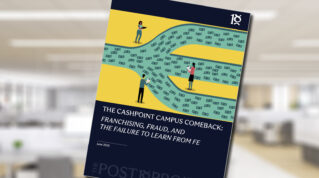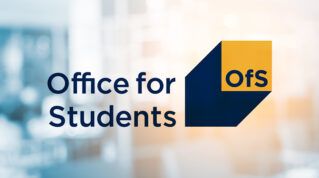A pilot scheme for new short higher education courses should be reviewed if numbers do not significantly pick up, an MP has said, after just 12 applications for student loans have been received to date.
The Department for Education last year announced 22 providers – all but one being universities – would design and deliver the £2 million Higher Education Short Course Trial for level 4 to 6 courses, with delivery beginning in the 2022/23 academic year.
In response to a parliamentary question by Labour MP Emma Hardy this week, the DfE said that it expected most courses to launch in January next year, but confirmed that just a dozen requests had been made to the Student Loans Company for tuition fee loans so far.
The maximum tuition fee loan available is £3,080 per course for those with 40 credits, or up to £2,310 for 30-credit courses. Students, though, are not required to take out a loan and can opt to fund the courses themselves or ask their employer to pay the fees.
Andrea Jenkyns, the skills minister, said she expects more students to participate in the courses. The very low figure, however, has sounded alarm bells.
“Access to short courses linked to skills is needed if we are to address the skills gap, and this was the DfE’s much heralded response,” said Hardy, MP for Kingston upon Hull West and Hessle.
“However, the first signs are that there is a lack of demand to pay for these using the current loan system. I doubt this is the level of take-up the DfE was hoping for. Should it remain at these low levels I expect there to be a proper review and the issues addressed.”
The exact number of applicants is not yet known as it is held at individual provider level. FE Week has approached all of the pilot providers to request applicant numbers but did not receive response at the time of going to press.
In her response to Hardy, Jenkyns added: “The department will be monitoring the overall number of students on courses and the number of applications for loans at various points throughout the trial.
“As a new type of learning the department is expecting demand for short courses to increase over the course of the three-year trial, as more people become aware of these opportunities and realise the benefits flexible learning can bring.”
The DfE announced the scheme last year as a step towards the lifelong loan entitlement plans from 2025, which eventually aims to fund the equivalent of four years of post-18 education.
Weston College was the only FE college to secure a contract in the three-year pilot, with the remaining 21 being handed to universities.
More than 100 courses are on offer in the trial, ranging from four weeks to a year. Among some of the courses are network security, disability inclusion, designing net-zero buildings, as well as mental health and wellbeing for children.
Meanwhile, the Office for Students said the courses aim to provide a more flexible way for students to acquire the skills needed by both employers and the economy.

















Your thoughts